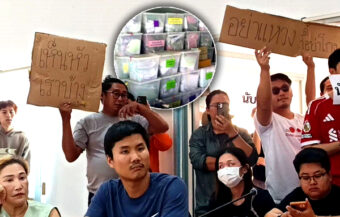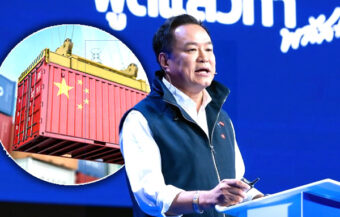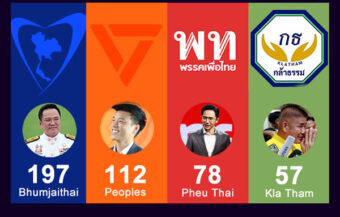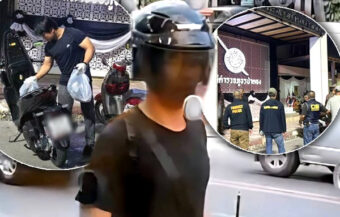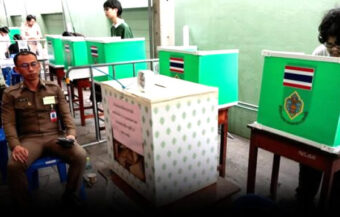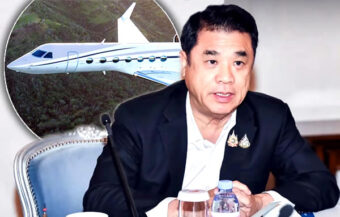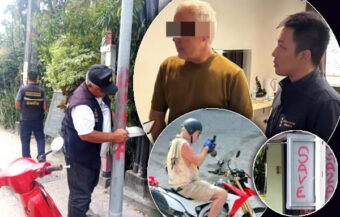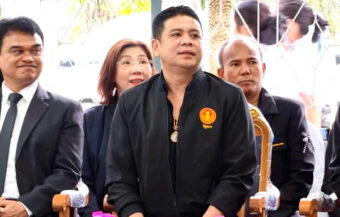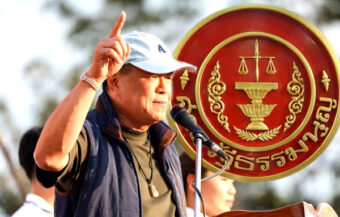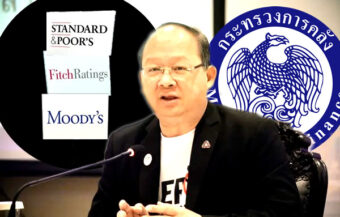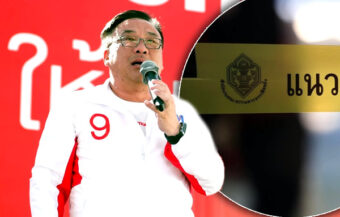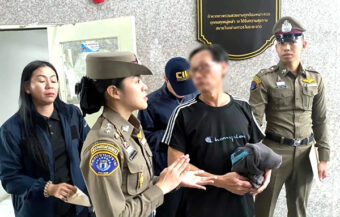Leaked call with Hun Sen plunges Thai PM Paetongtarn into political chaos—military stunned, coalition fractures, protests threatened and senators demand action. Critics say she betrayed the nation. Pressure mounts for resignation or a snap election.
A devastating leak from Cambodia’s strongman Hun Sen has severely undermined the leadership of Thai Prime Minister Paetongtarn Shinawatra. On Wednesday, a dejected and at times visibly distraught Prime Minister attempted to defend herself against what is now widely seen as a damaging audio recording of her own voice. The leaked conversation with Cambodia’s de facto leader reveals the 38-year-old PM expressing views at odds with Thailand’s 2nd Army regarding the ongoing and deeply sensitive border dispute. Even more damaging was her submissive tone toward the former Cambodian leader, offering to provide him with anything he wished. She also suggested that their discussions be kept secret and out of the social media spotlight — a remark that has drawn heavy criticism and intensified political fallout.
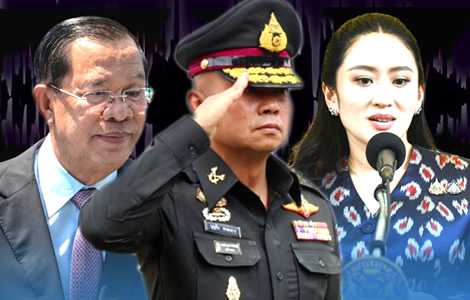
Thai Prime Minister Paetongtarn Shinawatra is facing the gravest crisis of her administration. A leaked phone call with former Cambodian Prime Minister Hun Sen has set off a political firestorm. The nine-minute recording has thrown her leadership into serious question and sent shockwaves through military and political circles.
The call took place on June 15. In it, Ms. Paetongtarn discusses sensitive border tensions. At one point, she asks Hun Sen to “tell her what he needs,” promising full cooperation. She also refers to Thai Army commander Lt. Gen. Boonsin Phadklang as one of the “opponents.” That comment stunned the military and angered nationalists across the country.
The call followed the deadly Chong Bok clash on May 28. During that incident, Thai and Cambodian soldiers exchanged fire near Ubon Ratchathani.
One Cambodian soldier killed in May clash as phone leak undermines Thai military credibility and control
A Cambodian soldier died in the exchange. The Second Army Region, under Boonsin’s command, had tightened border control afterwards. That effort had public support—until now.
After the recording surfaced, the Prime Minister confirmed its authenticity. She explained the call was an attempt to calm tensions. “I wanted to avoid escalation. I tried to calm Uncle,” she said, using her personal name for Hun Sen.
However, her remarks did little to cool the growing outrage. Her voice, tone, and promises to Hun Sen suggested weakness to many. The opposition was quick to react. Critics saw the call as submission to a foreign leader. Worse, they accused her of betraying national interests.
As a result, the political fallout was swift. The Bhumjaithai Party announced it would leave the ruling coalition. United Thai Nation Party posted a fierce message defending Thai sovereignty. Meanwhile, the Senate began mobilizing for accountability.
Senator Nantana Nantvaropas, normally supportive of the Prime Minister, made a decisive public statement. She represents a group of reformist senators who now demand action. “This is not yet a situation for a coup,” she said, “but the government must take responsibility.”
Senators say trust has collapsed and urge Prime Minister to either resign or dissolve parliament at once
She offered the Prime Minister a stark choice: resign or dissolve parliament. “Confidence in the government has eroded,” she added. Nantana urged the military to avoid any unconstitutional steps.
Senator Naraset Prachayakar voiced a similar concern. He said the Prime Minister had damaged Thailand’s diplomatic image. However, like Nantana, he opposed any military takeover. “This crisis must be resolved through law and elections,” he said.
The scandal also exposed deep cracks inside Pheu Thai. Paetongtarn, daughter of former Prime Minister Thaksin Shinawatra, had been seen as untested. Since winning office in August 2024, she has favoured quiet diplomacy. Her media-shy approach worked early on. But in moments of crisis, it has failed.
Previously, her administration was criticized for poor communication during the Uyghur deportation controversy. That event drew international condemnation. Later, she struggled in trade talks with the United States. This latest misstep may be the final straw.
Now, even former allies are distancing themselves. Khunying Sudarat Keyuraphan, once a leading Pheu Thai figure, offered sharp criticism. “She sounded like someone seeking personal favour—not defending national interest,” Sudarat said.
Internal cracks deepen as party allies turn on PM and say crisis proves she is unfit for high office
Meanwhile, Palang Pracharath spokesman Pol. Lt. Gen. Piya Tawichai went further. He called for the Prime Minister’s resignation. “Her words pierced the hearts of Thai people,” he said. “There are no excuses. She must step down immediately.”
He also revived claims that Paetongtarn tried to sideline Lt. Gen. Boonsin. According to Piya, there was pressure to transfer Boonsin from his command. This added fuel to the fire, suggesting political interference in military affairs.
Despite the controversy, Boonsin maintained a composed public stance. He confirmed that the Prime Minister had called him directly to apologize. “She explained herself. I said, ‘I understand.’ That’s all,” he said. But his short reply hinted at quiet disapproval.
Boonsin reiterated his loyalty to the country and his troops. He said his priority was the well-being of his men, many of whom were injured in the May 28 clash.
On Wednesday, the government tried to present unity. Defense Minister Phumtham Wechayachai insisted tensions had calmed. He said border negotiations with Cambodia’s Joint Border Commission were ongoing. “Checkpoints could reopen soon,” he noted.
Military remains publicly calm as the PM apologises but officials fear a deeper rift behind the appearance of unity
Still, the public remained sceptical. The Prime Minister said she initially wanted both sides to announce peace together. But Hun Sen reportedly refused. He demanded that Thailand move first. In exchange, Cambodia would follow five hours later. “He wanted political points,” Paetongtarn said, expressing frustration. “I won’t speak to him privately again.”
Hun Sen has admitted to recording the call. However, he denied leaking it himself. Instead, he claims to have shared the full 17-minute tape with 80 Cambodian officials. The Thai side received only a partial version. This added further confusion and mistrust.
Public anger is now at a boiling point. In a dramatic move, opposition leader Nattapong Ruangpanyawut urged the Prime Minister to dissolve parliament. “Only elections can restore legitimacy now,” he said.
Adding to the tension, anti-government protests are being planned in multiple cities. Demonstrators are calling for a return to “national dignity.” They demand clarity, action and respect for Thailand’s sovereignty.
Leaked recording triggers protests and mass outrage as opposition pushes for snap election to reset power
This unfolding crisis has certainly exposed the fragility of Paetongtarn’s leadership. While her defenders say she acted to avoid war, her critics see appeasement. Either way, the damage is done.
With coalition support evaporating and senators demanding accountability, her options are narrowing fast. Analysts now say a resignation or a snap election is almost inevitable.
Helicopter emergency landing as Cambodian border security is tightened near Poipet amid rising tensions
Hun Sen warns Jatuporn: ‘You know how capable I am’ in sinister message as formal relationship plummets
In the coming days, Thailand’s political future may be decided. The country faces a crucial choice: political paralysis—or democratic renewal. As the scandal reverberates, one truth is clear: this crisis has shaken the foundations of the Thai government. It is not clear if it will hold at all.


